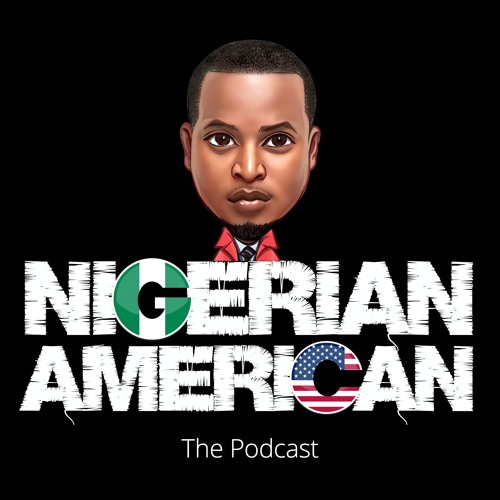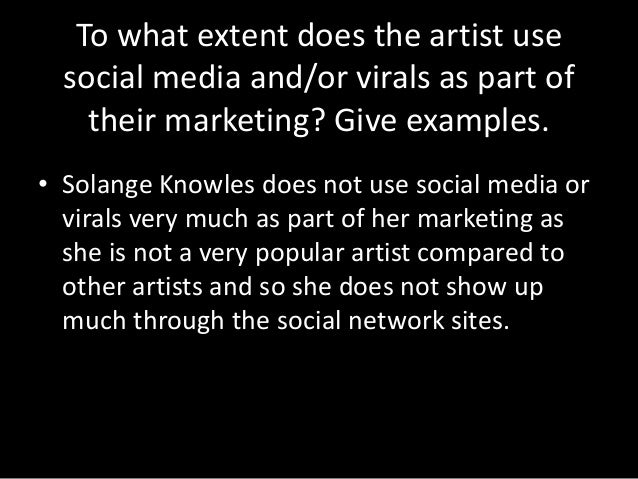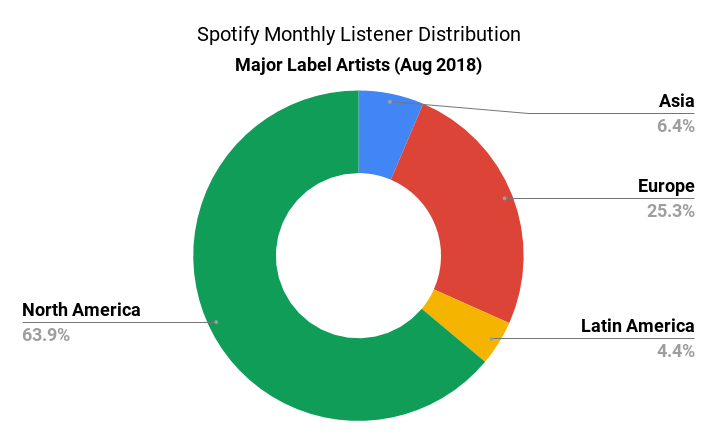38 independent artists vs major labels
Record label - Wikipedia Major versus independent record labels Record labels may be small, localized and " independent " ("indie"), or they may be part of a large international media group , or somewhere in between. The Association of Independent Music (AIM) defines a 'major' as "a multinational company which (together with the companies in its group) has more than 5% ... Being an Independent Artist vs. Signing to a Record Label 1. 100% creative control: Independent artists have complete control over the direction of their music. They also have full control over distribution, marketing, artwork, messaging, deadlines, and more. Moreover, an independent artist has free will to make decisions about their creative vision. It's the ideal scenario for many artists. 2.
Record Labels (Actually) Accepting Demos 2022 - Omari MC As best we know it, all these record labels are accepting demos now. Most of them are independent, so don’t count on them having artists with millions of listens. That doesn’t mean they can’t help get your music to the right listeners. It …

Independent artists vs major labels
How and Why Major and Independent Labels Work Together - Music Biz Academy Independent labels affiliate with majors to increase their artists' exposure in commercial media and to expand their distribution networks by increasing their access to major retail record chain stores and rack jobbers. Affiliating with a major label can maximize the likelihood of the independent getting paid for records sold. DistroKid vs. Tunecore vs. CD Baby vs...Distribution Reviews 15.07.2022 · It’s worth noting, that this comparison is for standalone music distribution services that primarily cater to independent musicians – not labels. INgrooves, The Orchard and Believe are all distributors in the space that primarily work with labels. Some work directly with artists and they take around a 20% commission for it. It's Easier Than Ever To Be Independent, but Major Labels Still ... Hip-hop began to explode onto the mainstream radar, and major labels were beginning to dive in. Early No. 1 albums flitted between independent and major. Tone Loc dropped Loced After Dark on...
Independent artists vs major labels. Major Labels vs Independent Labels | Differences Between ... - TeenStar The major drawback of using an independent label is that it is more likely they will have a much smaller budget for recording, production, and marketing. This means that artists often have to invest more time and energy into self-promotion if they want to get adequate exposure. Record label roles and responsibilities Independent music - Wikipedia Major label advances are generally much larger than independent labels can offer. Major labels are able to offer artists advances in the range of $150,000–$500,000. Some smaller independent labels offer no advance at all; just recording cost, album packaging, and artwork, which is also recoupable. Indie Label vs Major Label: which is best for you? - Kore Studios Friendlier deals - although this is not the case in all instances, artists singing contracts with independent labels tend to have more bargaining power, and therefore tend to sign more artist-friendly contracts. Cons: Money is tighter - while the smaller size of indie labels has its benefits (as mentioned above) it also has its drawbacks. Indie Labels vs Major Labels: Differences & Which is Right For You While major labels operate on an international scale, with their own distribution and publishing departments, indie labels normally enlist third-party companies to provide their global distribution and publishing services. Top Record Labels Many of your favourite artists have released music through independent labels.
What's the Difference Between a Major Label and Independent Label Deal ... A major has more financial resources than an independent, more support staff and leverage in the marketplace. On the other hand, some new artists may feel that a major label is not paying enough attention to them and offers less creative freedom than an independent. Of course, getting signed to a major is just the beginning of the process. Independent vs. Major labels: Who is growing faster? - Hypebot The major labels' combined revenue in 2020 was $15.2 billion, and in 2021 it was $18.7bn, representing 25% annual growth. If you simply deduct those figures from the IFPI figures you end up with an... An Indie Music Expert Explains Why Artists Are Turning Away From Record ... A label will give back something like 20 percent of their royalties — so someone like Lil Uzi Vert, who I think made $8 million from one song, will only receive $2 million back after they take ... Ditto vs Distrokid (Which Is Better?) - What We Learned From … 25.07.2022 · Label ($79.99/year+) – unlimited releases for 5 artists on all streaming platforms, keep 100% of revenue and all above benefits. The fees Distrokid charge rises from here for extra musicians added to the package. It goes all the way up to 100 bands/artists. It's best to check their pricing to find out if you need extra artists.
Labels Given Preliminary All Clear as UK Regulator Says Streaming … 26.07.2022 · The U.K. competition regulator said the major labels' dominance of the streaming business is not holding back artists and that the market delivers for consumers. Major vs. indie: Should you sign a record label deal? A major label has many more people working for them than an indie label. More people means you are less likely to work with the same person throughout your time at the label. Major labels have many experts in different areas (marketing, promotions, playlisting, radio tracking, distribution, etc.) compared to an indie, where fewer people take on ... Indie vs. Major Record Labels: Which is Right for You? Indie vs. Major Record Labels There are several factors worth considering when weighing the pros and cons of indie and major record labels: 1. Trust and Close Working Relationships Indie labels and boutiques generally have the advantage here. They have smaller artist rosters, which means you will get more attention. Pros & Cons Of Signing With Major Label vs. Indie Label vs. Staying ... Independent labels take master rights from an artist, but in contrast with a major label, it usually releases the rights after a few years since an artist stops working with the label. However, it doesn't always happen as it is mentioned and varies depending on a label and its proposal. 4. Connections
DistroKid vs. Tunecore vs. CD Baby vs...Distribution Reviews Jul 15, 2022 · It’s worth noting, that this comparison is for standalone music distribution services that primarily cater to independent musicians – not labels. INgrooves, The Orchard and Believe are all distributors in the space that primarily work with labels. Some work directly with artists and they take around a 20% commission for it.
Indie Vs. Major: Which Record Label Contract Is Right For You? • Close Personal Relationships: Independent record labels tend to have much smaller artist rosters than the larger, major record labels. Although this also means there is a smaller total staff employed by the label, artists typically work one-on-one with a representative who they can form a much more personal relationship with.
Ditto vs Distrokid (Which Is Better?) - What We Learned From ... Jul 25, 2022 · Label ($79.99/year+) – unlimited releases for 5 artists on all streaming platforms, keep 100% of revenue and all above benefits. The fees Distrokid charge rises from here for extra musicians added to the package. It goes all the way up to 100 bands/artists. It's best to check their pricing to find out if you need extra artists.
Independent label vs The Major labels. Pros and Cons! - Medium The Pros and Cons of signing to a major label! Pros Larger promotional budgets More connections More clout and influence Can do business in bulk Cons Resources spread among many acts Staff turnover...
Independent music - Wikipedia Independent labels have a long history of promoting developments in popular music, stretching back to the post-war period in the United States, with labels such as Sun Records, King Records, and Stax.. In the United Kingdom during the 1950s and 1960s, the major record companies had so much power that independent labels struggled to become established, until the launch of …
Artist Advice: Label vs Independent - Which Is The Better Route? A label also could help shift your skills into areas like scoring or soundtracking if you want. 5. Sync & Publishing: As traditional sales decline for artists, they have to find other avenues of revenue. A label can also be your publisher, which handles the revenue from streaming.
How much does Spotify pay per stream? Streaming payouts … 01.06.2021 · By ‘rights holders,’ we are referring to the owners of the music that is on Spotify: labels, publishers, distributors, and, through certain digital distributors, independent artists themselves.” So most of your money will go to the record label, then the distributor, and at the very end, the artist.
The music industry diy v.s independent label v.s major - SlideShare Independant label cons Less connections to the bigger labels Example: if you wanted to collaborate with a big artist your label may wouldn't be able to contact said artist or the label. Lower budget. (some) Labels market you in "goofy" ways like by making fake news about you to save money. Less Radio play. 15.

Where do Major Record Labels make their money? (Chart) in 2020 | Music business, Money chart ...
The Major Labels - Everything You Need To Know About Major Record Labels Warner Music Group has been through many highs and lows in its history as major corporations have owned the company over the years. Warner Music Group retains a 16% market share of the music industry with revenues of over $4.4 Billion dollars. Some well-known artists under this label include: The Doors, Pink Floyd, Led Zeppelin, Madonna, Wilco ...
See How Much Indie Artists Make vs. Label Artists - Hypebot Doing it without labels is not free. There are costs - it's just like any other business. Artist should understand that that 70% is not profit, but revenue. You need to deduct the costs from ...
DistroKid vs CD Baby: Battle of the distribution services ... Jul 26, 2021 · Here you can listen to other musicians’ releases, join groups, and get your music promoted the more you engage with and comment on other artists’ posts. If you’re an independent musician now, but hoping to sign to a record label, you can register for DistroKid Upstream; this lets record labels look through your profile and reach out to ...
'Independent artists can do everything that major labels can.' Today independent artists can do everything that the major labels can, within reason, as long as they have the know-how and budget.". An artist can have a really decent buzz, be making income outside of their own region and streaming really great numbers, and be able to get a more leveraged deal. If an artist can wait and put the income they ...
Being an Independent rapper vs. a Major label artist. There are definitely MUSICIANS who the major label system could work for.. but ARTISTS should stay independent, unless they can somehow actually retain creative control and the power to actually make decisions for themselves, but that record deal doesn't exist.These are big money companies and McDonalds doesn't let their cooks just sell whatever the fuck they felt like cooking that day.
Should Hip Hop Artists Stay Independent Or Sign To A Major Record Label ... However, staying as an independent artist leaves you in a totally different spot. The main reason that many hip hop artists choose to stay independent is because of the fact they get all of the money made. Additionally, being able to actually choose what you sound like is very important as well - nobody likes to be the imposter that writes ...
Indie VS Major Record Label: The Major Differences In general, independent music labels are more flexible than the major record labels. If you're doing it all by yourself of with your friends, then you have 100% ownership of your music. If you're dealing with even just one more person, make sure everything is put in writing, though. MONEY
5 Independent Musicians Who Refuse To Sign To A Major Record Label Here's 5 independent musicians who refuse to mold themselves to the Major Label Model. 1. Chance The Rapper. "I've met with every A&R, VP of A&R, president of the labels, CEOs. I know all these people," Chance the Rapper told The Fader in this 2015 article. He turned them all down, and he's loving his freedom.
Why Are Independent Artists and Labels Turning Away From Vinyl? Streaming may be today's dominant music format, but revenues from vinyl albums are on track to top a staggering $1 billion in 2021, up from $626 million last year. Even as vinyl sales scale new...
Record label - Wikipedia Major versus independent record labels. Record labels may be small, localized and "independent" ("indie"), or they may be part of a large international media group, or somewhere in between.The Association of Independent Music (AIM) defines a 'major' as "a multinational company which (together with the companies in its group) has more than 5% of the world …













Post a Comment for "38 independent artists vs major labels"